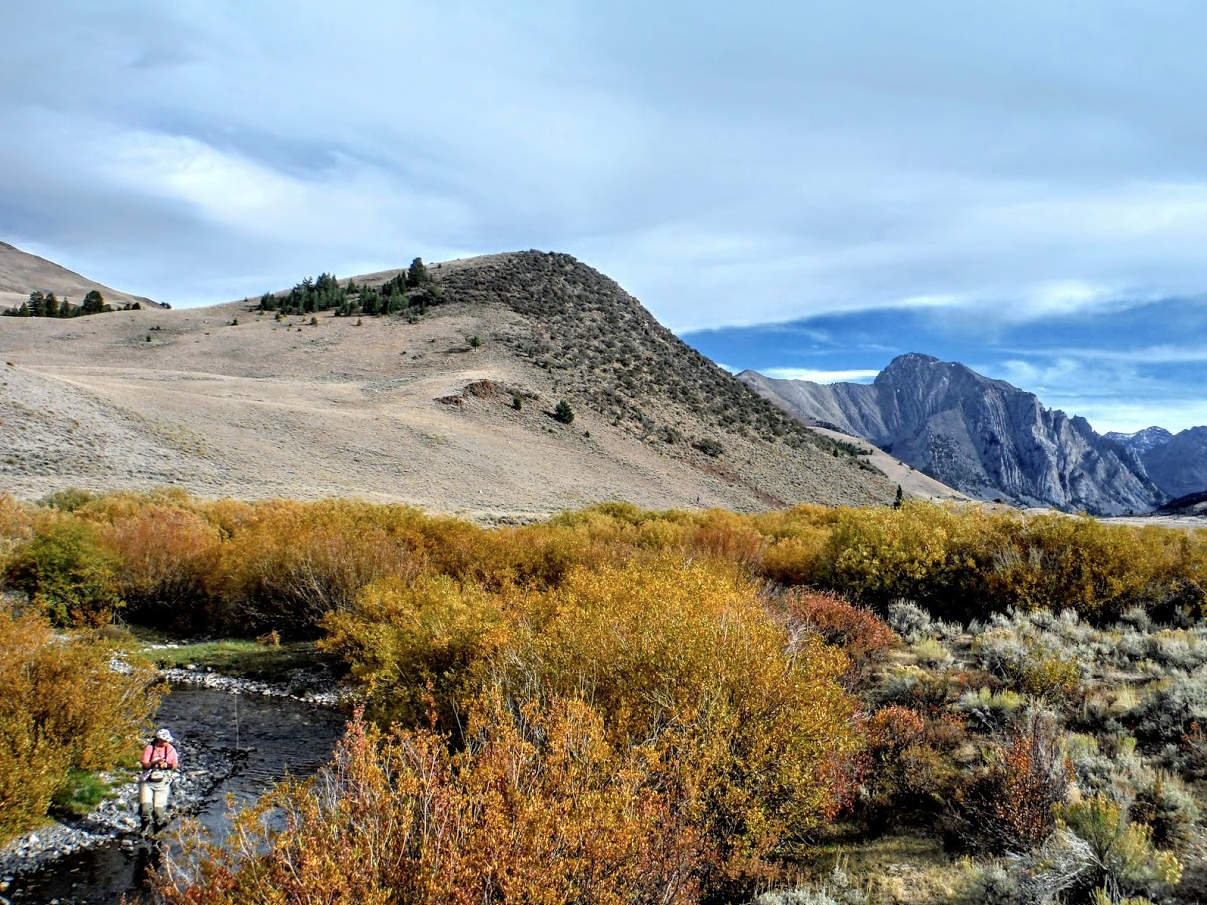We’ll always have to fight for our public lands, but we should be grateful we have them in the first place. Photo by Chris Hunt.
By Scott Willoughby
It has been said that the hardest math to master is the ability to count our blessings.
Funny enough, I’ve never been particularly good at math.
That’s not entirely true. There was a time, high school era, when my math scores could outrank my verbal marks on standardized tests. I suspect that may have changed after the accident.
I don’t have any genuine proof of that theory beyond the X-rays of my fractured skull in a manilla folder somewhere in the basement. There may not be any actual correlation, aside from general disinterest or potentially something akin to carrying capacity when it comes to algebraic absorption. But it’s not too great a stretch to think that a rollover car wreck in my teens simply knocked the math out of me. Or maybe it just reset my priorities.
There’s no question I could have died in that crash, or a heavy handful of other occasions since. If I’m to be completely honest, I probably should have, although it took some time to recognize that reality. I’ve always been a bit of a late bloomer. Fortunately, I’ve been blessed with bonus time.
That’s a calculus even I can comprehend. Catch and release, if you will. At the hand of God, if you like, although I tend to think he’s already got his hands full. Either way, I’m still here when I probably shouldn’t be.
Rather than ruminate on such existential enigmas, I prefer to ponder gratitude. It’s November after all, offering our annual opportunity to give thanks to Veterans, turkeys and everyone in between. But as inspirational author William Arthur Ward once noted, gratitude can turn even common days into thanksgivings, turn routine jobs into joy, and change ordinary opportunities into blessings. Then again, so can fly fishing.
Trout fishermen are especially well-equipped when it comes to gratitude, with bubbly cliches to bolster our effervescence. We talk about how we love trout fishing because it takes us to the most beautiful places, or how even a bad day fishing beats a good day at the office… yadda, yadda. We are enabled by focusing on the moment, the song of the river, the leisurely drift of the fly, and, if we’re lucky, the rise of a trout. How easily a common day is transformed.
Like a lot of folks, I try to make the most of those opportunities. Bonus time is ideally spent counting blessings, not problems. But at times it can be difficult.
Certainly there are no shortage of challenges before us all, including the daunting list of issues facing the conservation community. Daily evidence out of California and beyond demonstrates the realities of climate change have already taken root. Our most precious natural resources are perpetually under assault. Money, and perhaps more significantly, the collective commitment required to address critical conservation concerns are both in short supply.
And still we have much to be thankful for.
The count begins with more than 640 million acres of public lands and waters we are blessed with here in the U.S., the vast majority of them accessible to all at any time. The profoundly democratic idea of public land protection originated in 1872 with the creation of the world’s first national park, Yellowstone, and now extends to some 15 percent of the earth’s lands and 7 percent of its oceans currently protected in their natural state. That’s no small feat.
Despite our inherent self-indulgences, we’ve managed to reign in many of the over-harvesting issues that once threatened native fish and wildlife resources, even turning the tables to establish sources of income for wildlife management through licenses and excise taxes. Pat yourself on the back for that.
We continue to innovate, collaborate, and rise to conservation challenges as they emerge, often on a daily basis. And with the help of folks like philanthropist Hansjorg Wyss, who recently announced a $1 billion donation to help accelerate land and ocean conservation efforts around the world in the next decade, we very well may even catch up to the problems plaguing our environment, if not overcome them. A tip of the hat to that.
It is true that all conservation victories are temporary, but gratitude turns what we have into enough, and more. As Melody Beattie wrote, it brings peace for today and a vision for tomorrow.
Sure, tomorrow we will have to rise up once again to fight the good fight for the things that matter most yet cannot fight for themselves. But that’s our choice, our vision. And gratitude is our reward. I, for one, am grateful for the opportunity.
Scott Willoughby is the Colorado field coordinator for Trout Unlimited. He lives and works in Vail, Colo.



